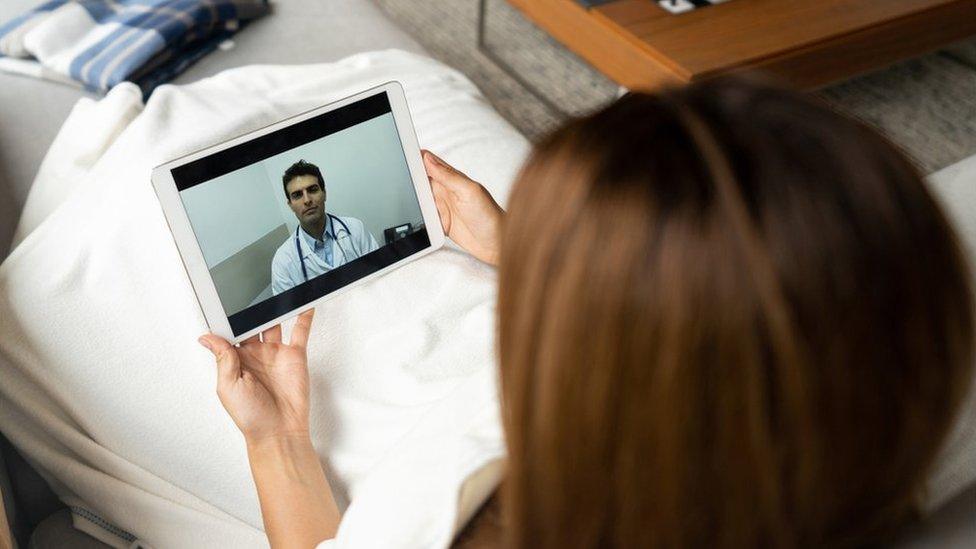NHS Wales: App helping keep heart patients out of hospital
- Published
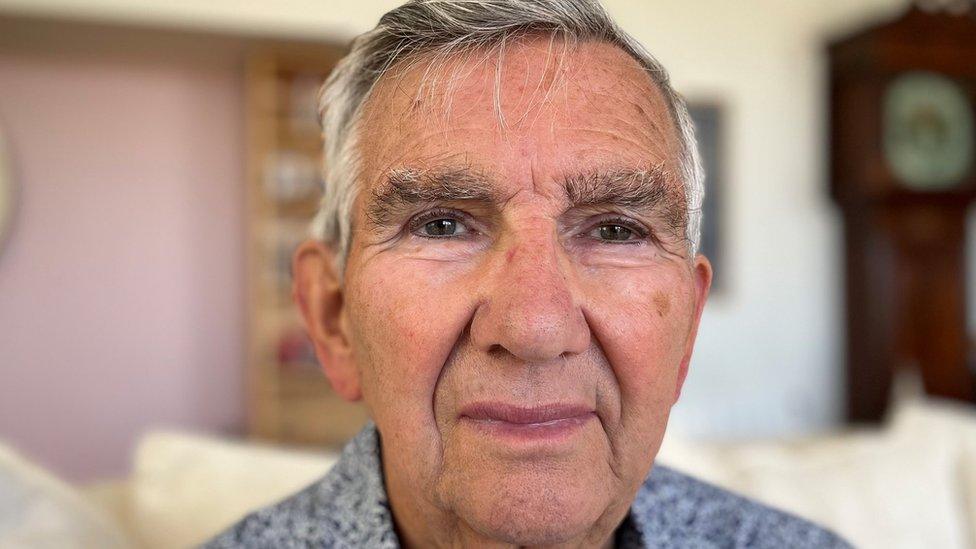
Alun Morgan's health can be checked daily via the app without leaving his home
Mobile apps to track patients' health are keeping them out of hospital and could cut waiting times, experts have said.
It follows a trial of a new app which heart patients are using through their mobile phones.
The trial allows clinicians to change treatments quickly and uses video consultations, avoiding unnecessary hospital visits.
One 80-year-old patient using the app said it was "brilliant".
In March, Alun Morgan was told he had heart failure and doctors said stress could be a factor.
A daily check up without leaving the house
He was placed on the trial to log his weight, blood pressure and the oxygen levels from the comfort of his home.
"I now appreciate four months on just how many trips to hospital it's saved me," the grandfather of seven said.
"As far as I'm concerned I'm on a daily check up without having to move from the house, which is brilliant.
"If I've got a problem they'll ring me up and say 'look, I'm not happy with that blood pressure reading, can you do it again in an hour'.
The former banker said he finds the technology easy to use, but knows he can call on relatives should he need help.
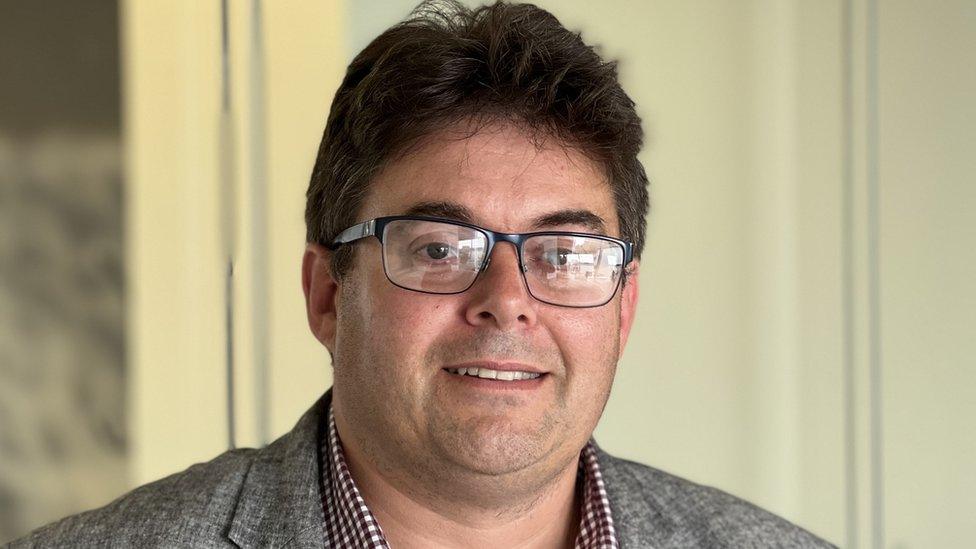
Rhodri Griffiths said money would be needed to keep up with technology
Rhodri Griffiths is the innovation adoption director at Life Sciences Hub Wales, and is looking for more ways to introduce similar technology.
He believes the pandemic accelerated the use and acceptance of digital solutions in healthcare, by patients and clinicians.
"We really are looking at a big digital revolution within healthcare and there are an amazing myriad of things coming through," he said.
He explained data collected by smartphones and watches can help predict who is likely to have a heart attack.
"We can avoid that happening. So prevention is key but it's also looking at how some of this can impact on waiting lists," he said.
"So, looking at how theatres are used, which patients can be prioritised?
"In social care it's looking at how pain is managed by face recognition.
Mr Griffiths said he believed the data collected could also identify wider problems.
"It's combining these digital solutions with our genetic information - bringing big data together on a population level we can start spotting trends.
"We can start understanding who may be at risk of cancer, heart disease, stroke in the future.
"Services can be designed around it - there's huge prospects out there."
However, he warned this would need a lot of investment.
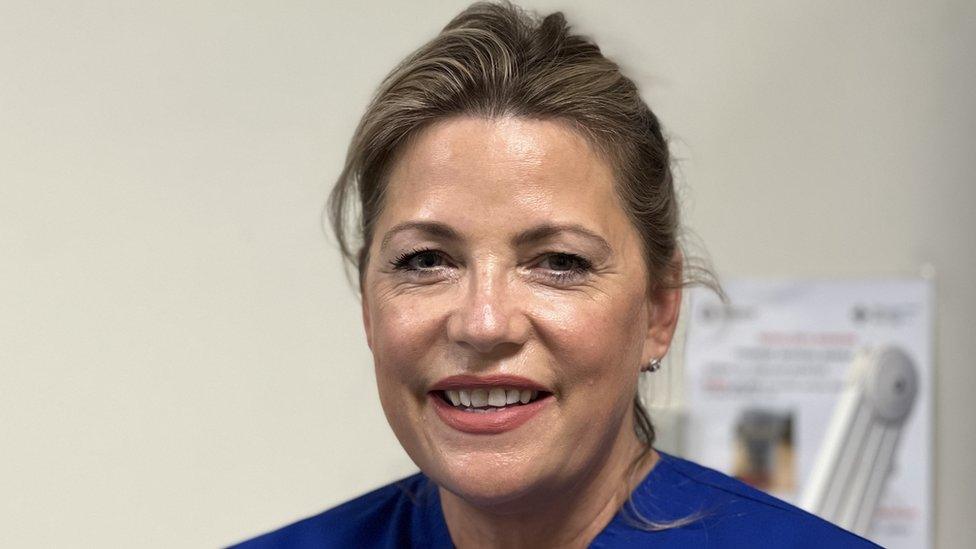
Mandie Welch says she has received positive feedback from patients
The heart trial app was produced by developers Huma and has been trialled in the Cwm Taf Morgannwg and Betsi Cadwaladr health board areas.
The first evaluation showed a 19% decrease in face-to-face outpatient appointments in Cwm Taf Morgannwg.
In north Wales, 90% of the trial patients who received additional or "escalated" care, did so due to data collected by their devices.
Proactive care is believed to reduce the number of patients going to accident and emergency departments.
Latest figures show almost 10,300 people in Wales waited 12 hours or more in A&E in June, technology that cuts those numbers will be welcomed.
'Keep them living longer'
Mandie Welch, lead heart failure advanced nurse practitioner at Cwm Taf Morgannwg University Health Board, said the technology had already "facilitated the early discharge of patients from cardiac care units".
She added it "allowed us to quickly see the difference medications are making to heart rates and blood pressure".
She said: "Crucially, patients told us that they feel better supported, and having the ability to track their own progress is helping to reassure them and better manage their conditions.
"We've already gone to a patient's home within a day to give them high dose water tablets to get rid of their fluid so they don't come to A&E, and the only reason we know that is because their weight has shot up on the app, and their heart rate has shot up, their symptoms are worse.
"Heart failure is known as the revolving door to A&E, so this app has identified those patients who are getting worse.
"Our main aim is to keep them living longer, to make them feel better and to reduce their readmission rate."
The pilot is one of several remote monitoring technologies funded by Welsh government's Covid-19 digital solutions fund, supported by the Life Sciences Hub Wales.

SAM SMITH PRESENTS STORIES OF HIV: From Terrence Higgins to today
BORN DEAF, RAISED HEARING: What it means to live in two different worlds

- Published5 August 2021
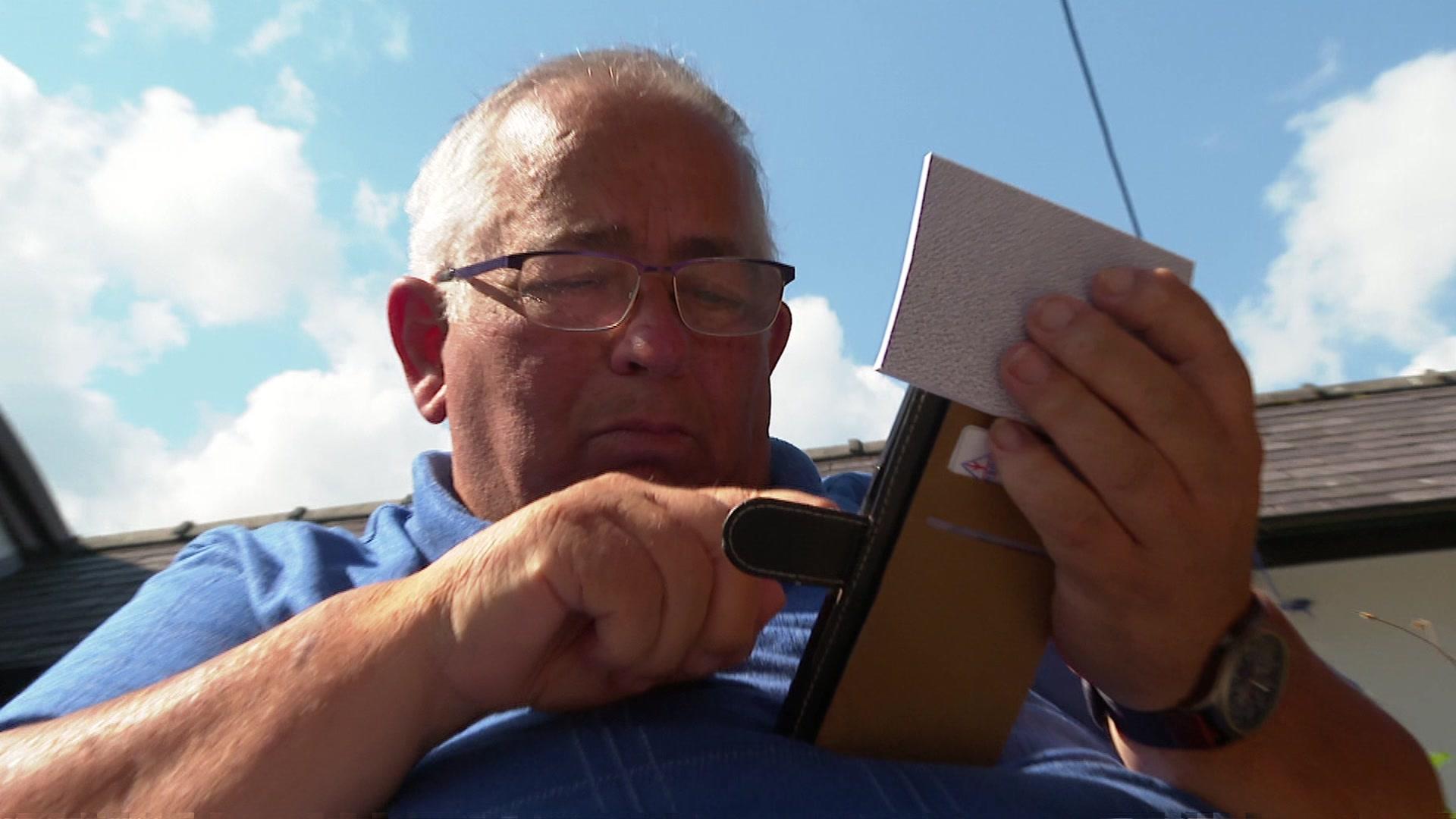
- Published1 April 2021
